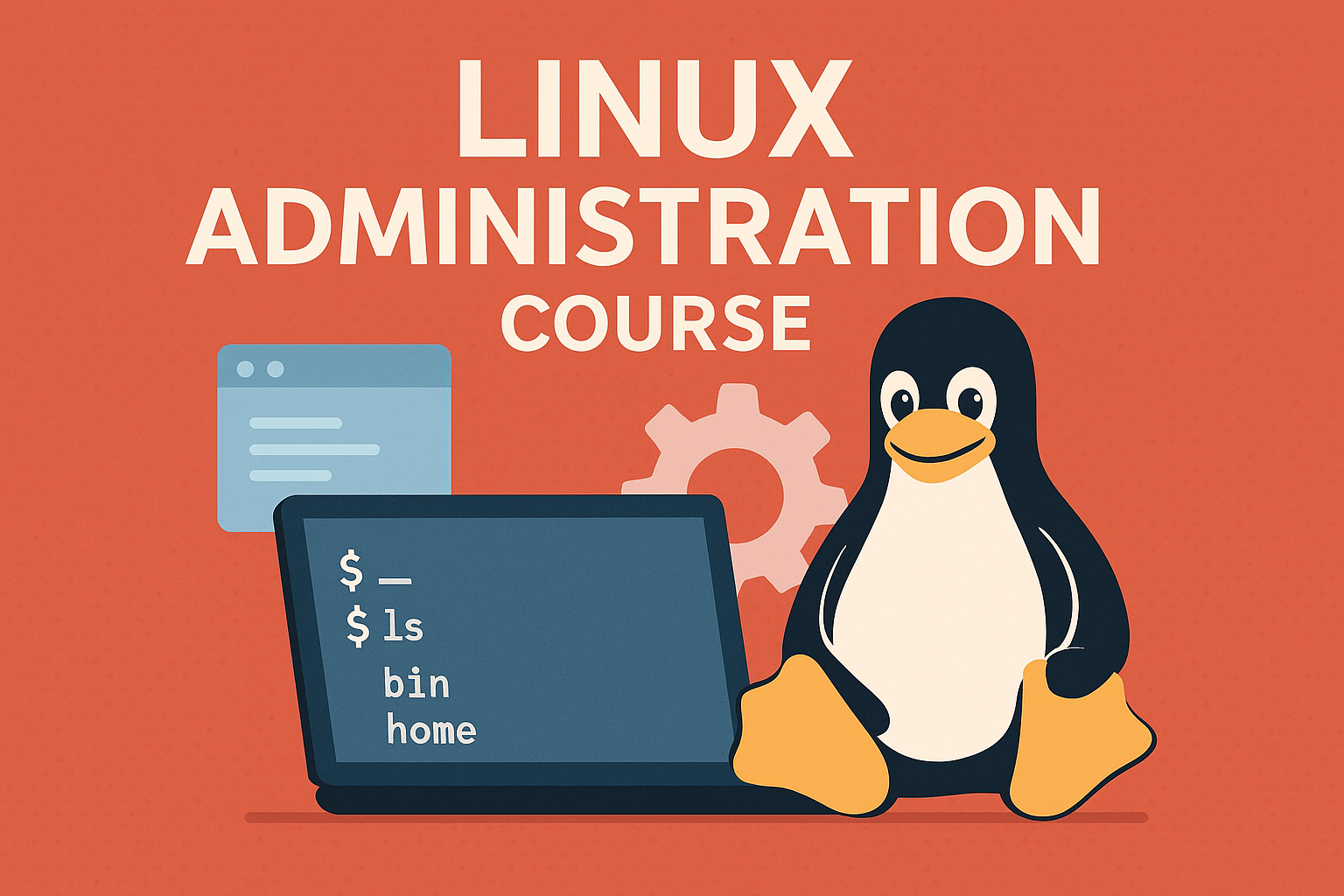Master Linux Administration
Become a Pro in Managing Linux Systems and Power Your IT Career
About This Course
Linux is the backbone of many enterprise IT environments, cloud infrastructures, and servers across the globe. BSoft’s Linux Administration course provides comprehensive training on managing, configuring, and troubleshooting Linux systems. Whether you’re aiming to become a system administrator or DevOps engineer, this course lays the groundwork with hands-on experience in real-world environments.
What You’ll Learn
Introduction to Linux
History and evolution of Linux
Open-source concepts and Linux distributions (RedHat, Ubuntu, CentOS)
Linux installation and basic system setup
Command line essentials and working with the shell
Linux File System Management
Understanding Linux file system hierarchy
Mounting and unmounting file systems
Managing partitions and disk usage
File permissions, ownership, and special permissions (chmod, chown, umask)
User and Group Management
Creating and managing users and groups
Configuring passwords, permissions, and sudo access
Managing user environments and login scripts
Software Management
Installing, updating, and removing software using package managers (YUM, APT, RPM)
Compiling software from source
Managing repositories and dependencies
Process and Services Management
Understanding Linux processes and jobs
Starting, stopping, and managing services
Monitoring system performance and resource usage
Managing services using
systemdandinit
Network Configuration and Troubleshooting
IP addressing, subnetting, and routing
Configuring and managing network interfaces
DNS, DHCP, and hostname resolution
Basic networking tools:
ping,netstat,ss,traceroute,iptables
Storage and LVM
Managing disks and partitions
Configuring LVM (Logical Volume Manager)
RAID configuration and troubleshooting
Mounting remote file systems (NFS, SMB)
Shell Scripting and Automation
Writing basic to advanced shell scripts
Automating system tasks using
cronandatScripting best practices and debugging
Security and Firewall Configuration
Linux security essentials
Configuring firewalls using
iptablesandfirewalldUsing SELinux/AppArmor
Securing SSH and remote connections
System Monitoring and Logging
System log files and log rotation
Tools for performance monitoring:
top,htop,vmstat,iotopAuditing and troubleshooting logs
Backup and Recovery
Backup tools and strategies
Restoring systems from backups
Disaster recovery planning
Course Benefits
Real-World Practical Labs: Get hands-on experience with Linux system setups and configurations
Foundation for Advanced Roles: Prepares you for careers in DevOps, cloud engineering, cybersecurity, and more
Certification Ready: Supports preparation for certifications like RHCSA, LFCS, and CompTIA Linux+
In-Demand Skills: Master skills essential for IT infrastructure, system administration, and cloud environments
Problem Solving & Scripting: Enhance your scripting skills to automate tasks and improve system performance
Who Should Enroll
IT Professionals & System Admins – Who want to upgrade their skills in Linux environments
Freshers and Students – Looking to start a career in IT with a strong Linux foundation
DevOps Enthusiasts – Planning to enter the DevOps/cloud ecosystem
Software Developers – Who want to understand the Linux systems they work with
Network Engineers & Support Technicians – Expanding their infrastructure and OS management skills
BSoft’s Advantage
Experienced Trainers: Learn from industry professionals with real-world Linux expertise
Hands-On Labs: Practice every concept in a simulated Linux environment
Updated Curriculum: Based on latest Linux distributions and system admin trends
Placement Assistance: Get help with resume building, interview prep, and job referrals
Certification Support: Guidance for clearing RHCSA, LFCS, and Linux+ exams
Unlock the Power of Open Source
Join BSoft’s Linux Administration Course and become a skilled Linux system administrator ready to manage real-world enterprise environments.


